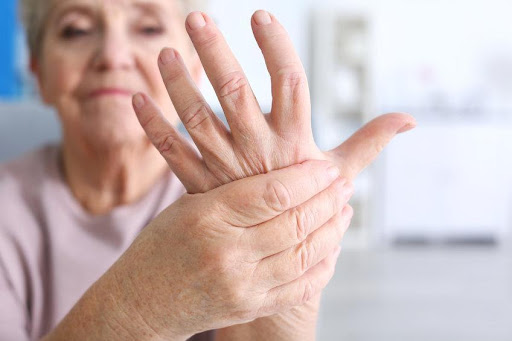
Common Types of Arthritis
Arthritis is not a single disease but a term to describe joint pain. According to the Centers for Disease Control and Prevention, nearly 24 percent of adults in the United States develop arthritis. There are more than 100 types of arthritis, but understanding the most common ones and how they develop can help you identify symptoms and get treatment as soon as possible.
Osteoarthritis
Osteoarthritis is the most common form of arthritis, affecting nearly 3 million people in the United States. The ends of bones have a protective layer of cartilage that creates a cushion, so bones don’t rub against each other at the joint. Osteoarthritis is when that protective cartilage wears down, causing the bones to create friction and pain in the joint.
Osteoarthritis can occur in any joint, but it’s most common in the hands, knees, hips, and spine. It’s most common in older adults who are overweight, have previous joint injuries, or with a family history of osteoarthritis. It’s also more common in women and those with certain metabolic diseases. Aside from pain, osteoarthritis can also cause stiffness, swelling, bone spurs, and a loss of flexibility. While there is no treatment to reverse damage caused to the bone, symptoms are manageable.
Rheumatoid Arthritis
Rheumatoid arthritis is an autoimmune disease. An autoimmune disease is when the body mistakenly attacks healthy cells. In the case of rheumatoid arthritis, it causes inflammation in various joints, usually in the hands, wrists, and knees. Additional signs and symptoms include stiffness in the joints, unexplained weight loss, fever, and fatigue. If left untreated, rheumatoid arthritis can affect body tissue and cause complications to the lungs, eyes, and heart.
Medical professionals are uncertain about the cause of rheumatoid arthritis, but it tends to develop in adults after 60 and is more prominent in women. It’s also more likely to develop in those who smoke or struggle with obesity. Treatments are available for those living with rheumatoid arthritis. Most treatments include medications to slow the progression of the disease and manage symptoms such as joint swelling and discomfort. Doctors also will typically suggest self-manage strategies to manage pain and discomfort. These strategies include staying physically active and controlling body weight.
Psoriatic Arthritis
Psoriatic arthritis affects some individuals with psoriasis, which causes scaly, itchy, or dry skin patches. It’s inflammatory arthritis that leads to stiffness, swelling, and pain in the joints. Other signs and symptoms include nail changes, such as minor dents or peeling at the nail bend, eye inflammation, swollen fingers and toes, back pain, and foot pain.
While psoriasis is the most significant risk factor for psoriatic arthritis, it’s also more likely to develop in those with a family history of psoriatic arthritis. Unfortunately, psoriatic arthritis is a chronic condition that worsens with time. There is no cure for psoriatic arthritis, but medications and other treatments are available to help manage pain and other symptoms.
Gout
Gout is common inflammatory arthritis that usually affects the big toes. Signs and symptoms of gout occur suddenly and include intense joint pain, discomfort, redness, and a loss in the range of motion. The pain can feel harsh and may make it difficult to walk. If left untreated, it can lead to joint damage.
Gout develops in people with high levels of uric acid in the blood. The uric acid builds up into urate crystals in the joints, causing inflammation and intense pain. People with high uric acid levels may get them from eating a diet rich in red meat, shellfish, and fructose. Additional risk factors include a family history of gout, obesity, recent surgery or trauma, and certain medical conditions like hypertension and kidney disease.
If you’re an older adult living with arthritis and need assistance at home, the team at Visiting Angels can help. Our Manassas office serves those in Prince William and Western Fairfax counties, including Fort Belvoir and Lorton. If you’re interested in learning about our services, you can call us at 703.530.8811 or contact us online.
